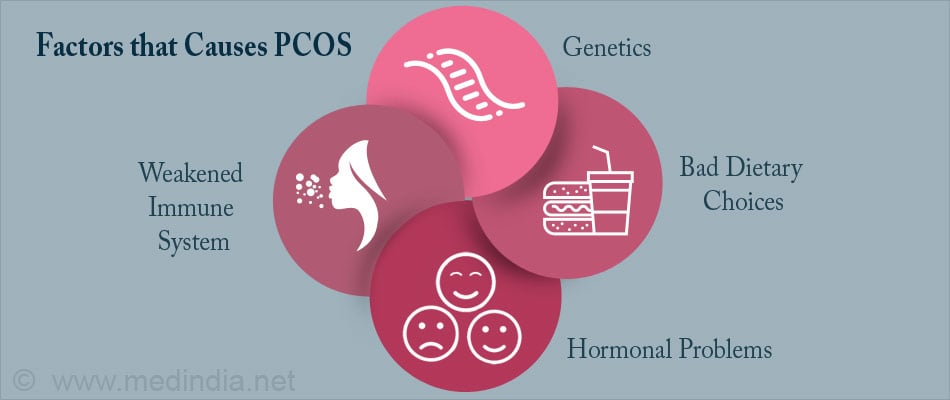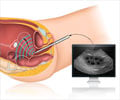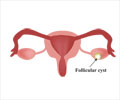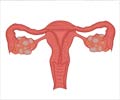Polycystic Ovarian Syndrome - Causes
The proposed causes of polycystic ovarian syndrome are numerous and may, in fact, be multiple.

In polycystic ovaries the follicles that contain eggs do not mature and hence are not released from the ovaries. Instead, the follicles accumulate as cysts in the ovary. Immature follicles lead to infertility.
Low levels of the Follicle Stimulating Hormone (FSH) from the pituitary gland, retards the maturation process of the follicles. Only if the follicle is fully matured; the egg is released during the menstrual cycle.
About 50-70% of follicular cysts regress in 2 months and another 5% in 3 months. Rarely ovarian cysts can rupture and cause internal bleeding and this is more likely in over 30 years of age.
The proposed causes of polycystic ovaries syndrome are numerous and may, in fact, be multiple. These are briefly listed below:
- Ovary hormones -When the hormones that trigger ovulation are not at the right levels, there is lack of maturation of follicle and the inability to ovulate.
- Increased androgen production by the adrenal glands at puberty - High androgen levels in a woman causes hirsutism and acne problems and can stop ovulation.
- Disturbances in the cyclic pattern of GnRH release by the hypothalamus
- Insulin resistance- inadequate response to insulin that can lead to abnormally elevated blood sugar (glucose) levels. The insulin disturbance is thought to also be the trigger for the development of symptoms such as acne and excess hair growth that is seen with PCOS.
- Autosomal dominant transmission - there is not yet enough evidence to say there is a genetic link to this disorder. Women with PCOS frequently have a mother or sister with PCOS




















